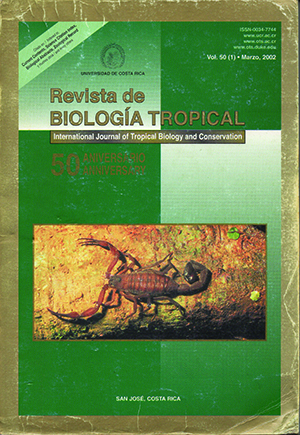Abstract
Variation of morphological characters in the pitviper Bothrops asper (Garman) was studied in terms of scutellation, color patterns, and landmark measures for 374 Middle American specimens. Gender, ontogeny, and geographic effects were examined for each character. In this species, females are larger than males and have more ventral and dorsal rows, and can be distinguished by some landmark variables. Males have a higher number of subcaudals and usually are more heavily pigmented in the supralabial region. Age does not affect scutellation, although it does influence pigmentation patterns. Geographic differences were evident in several traits. The seven Middle American populations included in these analyses can be clustered in two major groups: those from Mexico and Nuclear Central America and those from Isthmian Central America. Distinction between these groups is possible in terms of univariate statistics and differences are explained in terms of population fragmentation due to the dynamics of rainforest during Quaternary or by isolation by distance among populations within each region.Comments

This work is licensed under a Creative Commons Attribution 4.0 International License.
Copyright (c) 2002 Revista de Biología Tropical
Downloads
Download data is not yet available.


